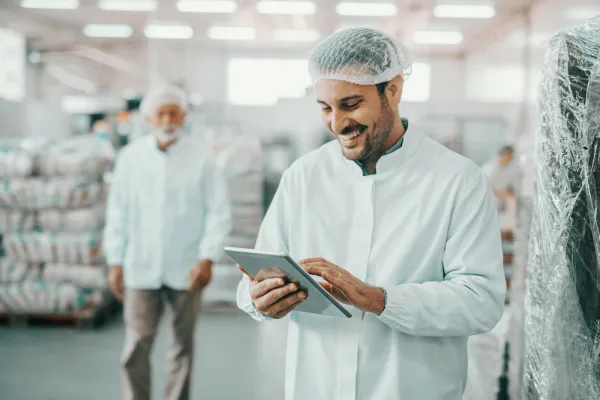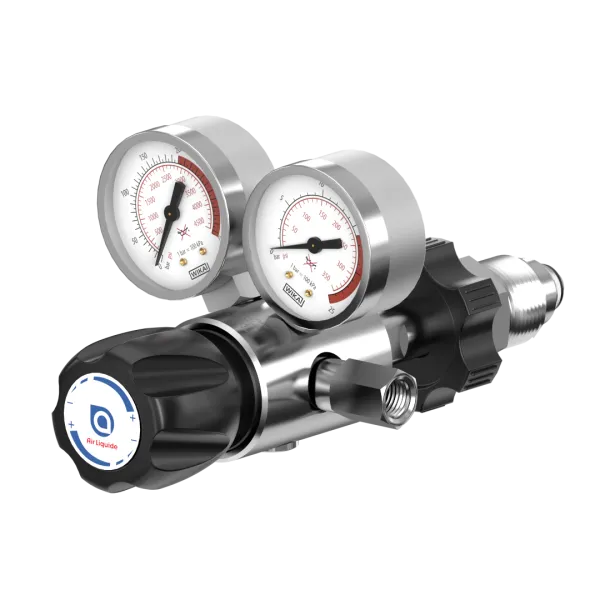Why choose Air Liquide for your modified atmosphere packaging (MAP) needs?
|
|
Expand your catchment area, take on new marketsProducts protected under MAP can be delivered over longer periods and larger geographical areas. Planning therefore becomes more flexible and logistics more efficient. Production yields are optimised, therefore the means of production and personnel resources as well. |
|
|
Sustainable innovationThe shelf life of protected products is naturally extended by a few days or even weeks. The amount of artificial preservatives can be reduced. Special bio-based and attractive packaging is developed every day, so get started and innovate sustainably thanks to modified atmosphere packaging. |
Modified atmosphere packaging (MAP)
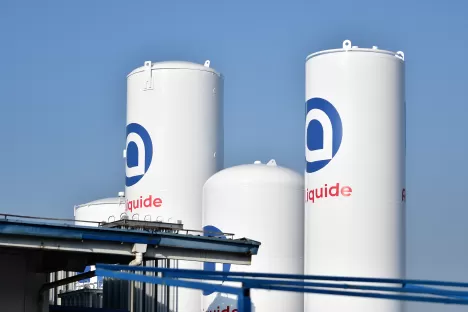
Food grade gases
Different gases or gas mixtures can be used to improve the colour, appearance and taste of a food product.
The four most used gases are Carbon Dioxide, Nitrogen, Argon and Oxygen, either pure or in mixtures at different concentrations.
Air Liquide assists you in choosing the most suitable atmosphere for your product and advises you on the best solution if you have several products to pack.
Purity at the heart of your products
Do you have a demanding attitude when it comes to food products? Well so do we. A reference solution in the market, our range of food grade gases provides you with all the quality and traceability you need, complying with European food safety regulations. They are subject to numerous controls and analyzes throughout the production and distribution chain. All our gases for packaging in a protective atmosphere are ISO 22000 certified.
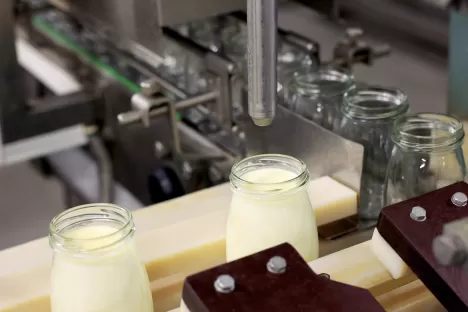
Materials certified for contact with food
Air Liquide offers a wide range of certified equipment in accordance with European regulation 1935/2004:
- They are supplied with a certificate of compliance with regulations and benefit from enhanced traceability that allows batches to be withdrawn within 48 hours.
- The expansion units are designed to generate the precise pressure and the necessary flow regardless of the size of the installation (by means of an individual bottle or in bulk and in a fully automated way)
- With our dynamic mixer for food use, you can continuously produce gas mixtures that fit your needs.
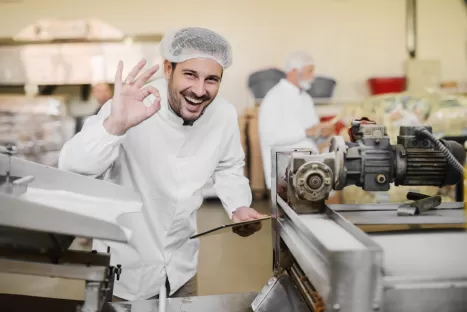
Improve the performance of your facilities
Our food industry experts know that packaging materials and equipment are just as important as the right gas mix.
Whatever your product - meat, poultry, fish and seafood, fruit and vegetables, baked goods, ready meals, dairy products, cheese and much more - we can advise you on:
- Choosing the right gas or gas mixture for each product.
- The form of gas supply (bottle, frame block, liquid, generators, etc.).
- The design of gas supply networks.
- The training of your staff in the use and handling of gases.
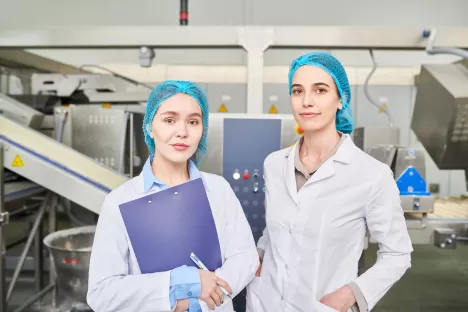
Our knowledge and experience at your service
Our engineers are on the ground to provide you with on-site expertise to help you successfully implement modified atmosphere packaging. Thanks to our close collaboration with suppliers of plastic films and packaging machines, we are able to offer effective and attractive integrated solutions. Tell us your needs and together we will find the solution.
Our experience:
- More than 1,500 food products tested worldwide
- Food experts in a global network
- A local team dedicated to your project
How does MAP modified or controlled atmopshere packaging work?
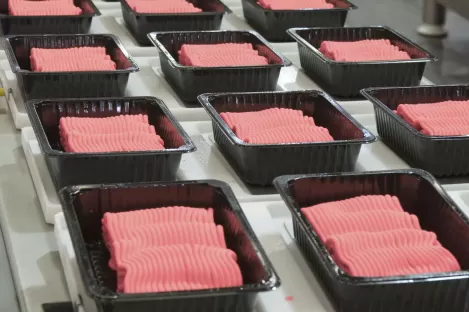
Air is made up of 78% nitrogen, 21% oxygen and the rest by carbon dioxide (0.04%) and other gases in very small concentrations. A change in these proportions significantly changes the storage conditions and respiratory activity of food.
The packaging of food products in modified atmosphere consists of replacing the atmosphere that surrounds said food product with another specially designed to minimize chemical, enzymatic and microbial reactions.
The storage time limit is multiplied by 2 for products with significant water activity (>0.91) and by up to 5 when the water activity is lower.
Our food grade gases are specially formulated for modified atmosphere packaging, enhancing the properties of each gas molecule:
| Nitrogen | Carbon Dioxide | Oxygen | Argon |
| • Prevents oxidation • Limits the growth of aerobic bacteria • Protects against container collapse |
• Limits the growth of bacteria • Stops the development of mold • Contributes to the collapse of the container |
• Maintains the intense colour of red meat • Avoids anaerobic conditions • Essential for the respiration of fruits and vegetables |
• Nitrogen like benefits • Respiration - inhibiting effect of fresh fruits and veg |
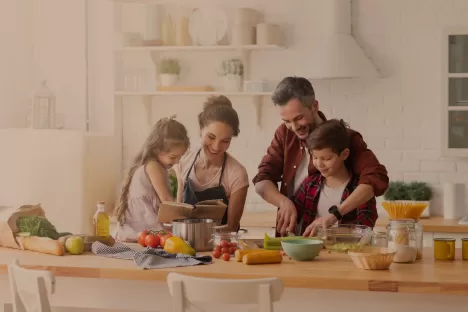
The result:
- The original quality of food products is preserved,
- Prolonged freshness is achieved to obtain greater flexibility, since the margin is extended to manage the stocks in the factory and throughout the entire distribution chain,
- A perfect visibility of the product is maintained, with an impeccable presentation: the stretched film is a perfect support to highlight the product, as well as maintaining the colors, shapes and textures of the products, resulting in an attractive package for the consumer. The hygiene of the latter is preserved thanks to the protective and hermetic packaging that limits microbial contamination.
Comparison of the shelf life of products in air and in a protective atmosphere
| Product |
Recommended |
Service life in air (indicative value) |
Service life under MAP (indicative value) |
|---|---|---|---|
|
Dry products |
100% nitrogen |
1 month |
Several months |
|
Fresh pasta |
50% nitrogen |
6 days |
21 days |
|
Fresh pizza |
70% nitrogen |
6 days |
21 days |
|
Crepes |
50% nitrogen |
15 days |
1-2 months |
|
Precooked bread |
100% CO₂ |
10 days |
2-3 months |
|
Pressed cheese |
80% nitrogen |
1-2 weeks |
4 weeks |
|
Mixed salad, ready to eat |
85-90% nitrogen |
2-5 days |
6-7 days |
|
Sandwich |
70% nitrogen |
2 days |
8 days |
|
Cooked ham |
50% nitrogen |
6 days |
21 days |
|
Fish steak |
60% nitrogen |
3 days |
5 days |
|
Cut poultry |
70% nitrogen |
4 days |
7 days |
|
Mince |
70% nitrogen |
1 days |
4 days |
|
Processed meats |
70% nitrogen |
4 days |
30 days |
The 3-in-1 effect of modified atmosphere packaging
-
Quality preservation
Reduce food waste by preserving the look, taste and texture of fresh food for longer -
Business developement
Increase the shelf life and mechanical protection of fresh products and expand your distribution possibilities. -
Compliance with standards
Protect your fresh products against microbiological problems and comply with food legislation and HACCP requirements
Packaging in a protective atmosphere is adapted to each type of product
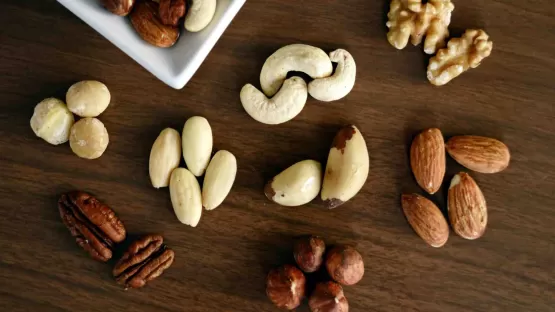
Dry products
The efficiency of the process requires a proper selection of the packaging atmosphere.
For dry products (nuts, crisps, powdered products) it is advisable to remove oxygen from the air and replace it with an inert gas, to prevent oxidation of the fat. A microbial development is not foreseeable, given its degree of dryness. In the particular case of dry products destined for export, the use of CO2 (pure or in mixture) allows, thanks to its great solubility in fat, to limit the effects of pressure on thermal or barometric variations during transport.
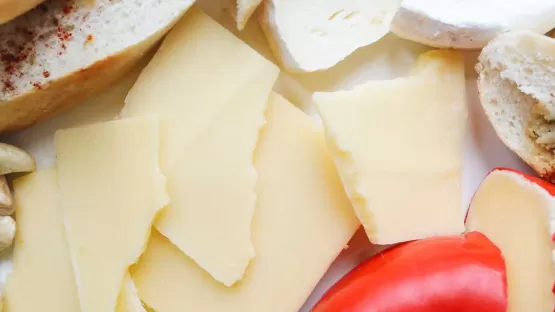
Cheeses, bakery and pastry products
Intermediate moisture products are subject to microbial growth, mainly mould.
For most cheeses , the main risk is the development of moulds. In some cases, they are necessary (white rind cheeses such as Camembert, grated cheese...) where the O2 content must be limited to 20%. However, the cheese in portions is packaged with a gaseous mixture that includes a significant CO2 content to allow a very flat package.
Bread , pastries and cake batters, are also often subject to microbial growth. The use of CO2 in packaging is especially necessary, since it is difficult to reduce the residual oxygen content of some "porous" products (bread or pastries) without additives.
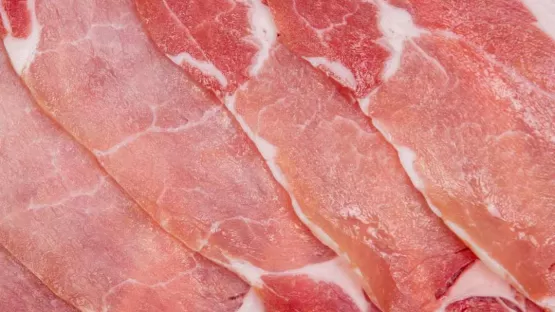
Cured meats
In these products with high humidity, it is advisable to use a mixture of carbon dioxide with nitrogen in a proportion that depends on their level of humidity and the endogenous microbial flora.
Most of the cooked meats products (with the exception of dry cooked mats), as well as prepared products , are very sensitive to microbial growth. However, the use of pure CO2 or in a high percentage can lead to a significant shrinkage of the container or give a slightly acidic taste (products with a high fat content or in sauce).
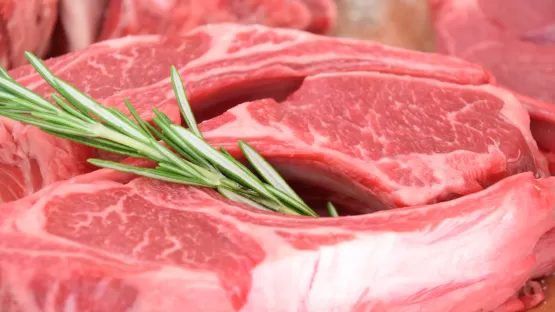
Meat products
Some products require a minimum content of oxygen in the atmosphere used, in order to preserve the color (red meat).
The use of a gaseous mixture with a higher percentage of O2 allows maintaining or reinforcing the red or pink color of some meats or poultry. The simultaneous use of CO2 contributes to slow down the development of microorganisms.
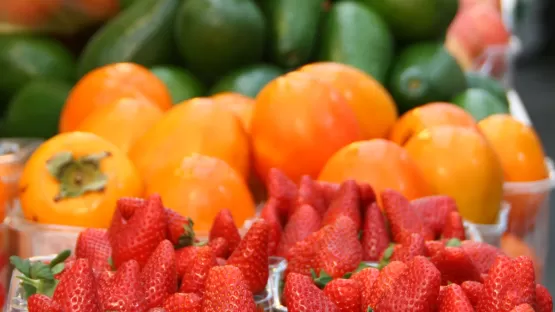
Fruit and vegetables
Modified atmosphere packaging of fruits and vegetables requires holding your breath.
The joint use of films with precise and selective permeability with specific gas mixtures based on their respiratory rate is necessary. In the case of packaging salads and range IV products , the use of Argon gives much better results than using any other mixture, especially in the last days of the products' shelf life. The use of argon prolongs the freshness and flavour of salads.
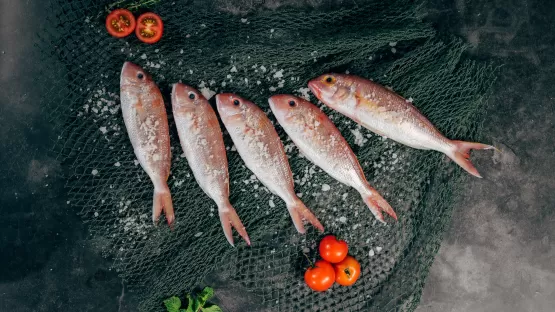
Fish and seafood
The modified atmosphere allows to prevent the development of anaerobic microorganisms in fish and shellfish.
For fish and shellfish, gas mixtures N2 /CO2 are used and in some cases mixtures that incorporate oxygen.
Do you have any questions about gases for modified atmosphere packaging?
Please fill in our contact form below and we'll come back to you as soon as possible
What gases are used in protective atmosphere packaging?
The gases traditionally used in modified atmosphere packaging are mixtures of N2 , CO2 and O2. Air Liquide proposes a series of pure gases and food grade mixtures that are adapted to each food product and complies with current food safety regulations.
- Compliance with the European regulation on food additives
- Compliance with the HACCP system and FSSC 22000
- Dedicated bottles, with specific labeling, for exclusive use in the food industry and special valves to prevent cross contamination
- Following strict specific quality control and filling procedures
- Implementation of traceability and product recall systems
Let Air Liquide's food specialists recommend the best food grade gas solution for your process needs. They will choose the most optimal gas supply mode for your production process and to suit your changing gas needs: Bottle, Block, Liquid Storage or On-Site Production.
How can Air Liquide expert accompany you on your project?
Associating ourselves with your projects, we accompany you day by day in your search for efficiency, results and innovation. With Air Liquide, you benefit from the experience and know-how of a world leader in industrial gases.
Our food industry experts understand that packaging material and equipment are just as important as the correct gas mix. Our teams carry out field work providing their on-site knowledge for the gas packaging of meat, poultry, fish and seafood, fruits and vegetables, baked goods, pre-cooked meals, dairy products and cheeses, among others.
Our food specialists will help you:
- Choose the right atmosphere depending on the product.
- Design and build gas distribution facilities.
- Advise on the commissioning of the installation.
- choose a logistics that suits your needs.
- Train your staff on the use and risks related to the use of gases.
Vacuum packaging or modified atmosphere packaging?
Vacuum packaging should not be confused with modified atmosphere packaging.
Vacuum packaging is an indispensable aid for professionals. It consists of eliminating the air in a container around the food that you want to preserve. A vacuum machine is used for this. Vacuum packaging also increases the shelf life of foods, but is intended for particular products that can withstand crushing.
For products packaged in a modified atmosphere, the air is replaced by a gas with protective or active properties. The gas provides a protective cushion effect against crushing, prevents fat oxidation and limits the proliferation of microorganisms. The equipment to be used is a gas injection machine. It must be designed to be compatible for this use, especially when oxygen is used (especially for red meat).
The application of packaging in a protective atmosphere requires frequent and strict controls: quality of the welds, compliance with the proportions of the mixture and the level of residual oxygen, etc. These measures, which guarantee shelf life, must be integrated into quality programs and health control plans.
Frequently asked questions
How to increase the shelf life of products?
What does “packaged in a protective atmosphere” mean on certain food packaging labels?
What are the different packaging machines for M.A.P?
What installation do I need to use gas?
What modified atmosphere for the conservation of fresh meats?
What modified atmosphere for bakery products?
What modified atmosphere for the conservation of seafood products?
What modified atmosphere for the conservation of cheese and dairy products?
What modified atmosphere for dry products?
What modified atmosphere for the conservation of prepared fruits and vegetables?

